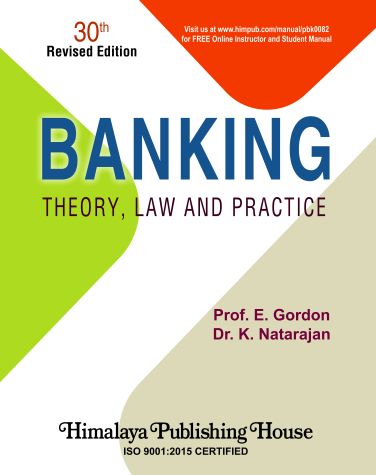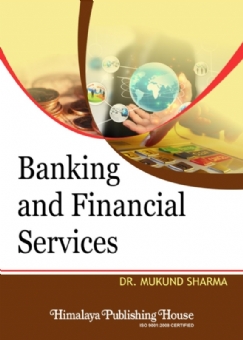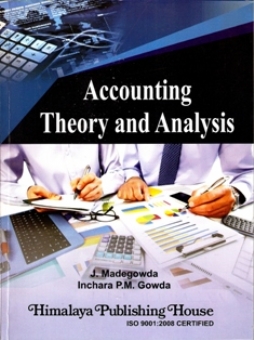The banking scenario in India is changing fast to keep pace with the international banking practice. As a result, the banks in India have been asked to meet specific standards such as capital adequacy norms, classification of assets, income recognition norms, Basel II accord, etc. Further, new directions have been issued to bring the NBFCs under strict control and to improve their financial health. The banking ombudsman scheme has been introduced to protect the interest of the depositors. Many post-reform developments have taken place so as to enable the banks to function with improved financial strength and functional efficiency. The negotiable instruments act has been amended recently with a view to enhancing the acceptability of cheques and thus, improving the efficacy of banking operations. The privatization of banks is on the move again.
The latest development in the field of banking like the introduction of inclusion Inter-bank Mobile payment service, Green channel counters, financial Basel III Norms, new types of NBFCs, ATMs for rural masses, management of Non-performing Asset, Mchq product, Real-time gross settlement, etc., are included in this edition.
Contents :
- BANKER AND CUSTOMER
Origin of Banking – Banker – Banking and Other Business – Customer – The Modern View – The Relationship between a Banker and a Customer – General Relationship – Special Relationship – Statutory Obligation to Honour Cheques – Banker’s Lien – A Banker’s Duty to Maintain Secrecy of Customer’s Account – Right to Claim Incidental Charges – The Right to Charge Compound Interest — Exemption from the Law of Limitation Act.
- DEPOSITS
General Precautions for Opening Accounts – KYC Norms – Current Deposit Account (Current and Running Account) – Fixed Deposit Account – Savings Deposit Account – Recurring Deposit – Other Deposits.
- PASSBOOK
Introduction — Maintenance of a Passbook—Is Passbook an Authentic Record?— The Situation in America — The Position in India – Entries Favourable to the Customer – Entries Favourable to the Banker.
- BANK CUSTOMERS – SPECIAL TYPES
Minor or Infant – A Married Woman – Lunatic – Drunkard – A Partnership Firm – A Joint Stock Company – Non-trading Companies – Private Companies – Clubs, Societies and Non-trading Associations – Executors, Administrators and Trustees – Joint Account.
- NEGOTIABLE INSTRUMENTS
Negotiable Instruments Act – Features of a Negotiable Instrument – Types of Negotiable Instruments – Classification of Negotiable Instruments – Special Parties to a Negotiable Instrument – Miscellaneous Terms – Negotiation Vs. Assignment.
- CHEQUES
Definitions of a Cheque – Distinction between Cheque and Bill of Exchange – Salient Features of a Cheque – Printed Forms – Special Printer Forms – Draft – Cheque Vs. Draft – Drawing up of a Cheque – Proper Drawing of a Cheque – Banker’s Cheques.
- MATERIAL ALTERATION
Introduction – Alteration that Amounts to a Material Alteration – Effect of Material Alteration – Examples of Material Alteration –Material Alteration and the Banker – Statutory Protection in the Case of a Materially Altered Cheque – Immaterial Alteration – Alteration Authorised by the Act – Devices to Arrest Material Alteration.
- CROSSING
Kinds of Crossing – General Crossing – Special Crossing – Not Negotiable Crossing – A/c Payee Crossing – Double Crossing –Who can Cross a Cheque? – Opening of Crossing.
- ENDORSEMENT
Introduction – Definition of Endorsement – Significance of Endorsement – Assignment Vs. Endorsement – Kinds of Endorsement – Regularity of Endorsement – Liability of Endorser.
- MARKING
Marking Vs. Acceptance – Significance of Marking – Marking and Paying Banker – Marking of a Postdated Cheque.
- PAYING BANKER
Precautions Before Honouring a Cheque – Circumstances for Dishonour of Cheques – Answers to Dishonoured Cheques – Statutory Protection to a Paying Banker – Payment in Due Course – Holder in Due Course – Recovery of Money Paid by Mistake.
- COLLECTING BANKER
Banker as a Holder for Value – Banker as an Agent – Conversion – Banker’s Liability – Statutory Protection – Basis of Negligence – Duties of a Collecting Banker.
- RIGHTS OF A BANKER
Right to Set-off – Right to Close an Account – Right to Appropriate Payments – Rule in Clayton’s Case.
- LOANS AND ADVANCES
Principles of Sound Lending – Secured and Unsecured Advances – Forms of Advances.
15.MODES OF CHARGING SECURITY
Lien – Pledge – Mortgage – Legal Mortgage Vs. Equitable Mortgage – Rights of Mortgager – Rights of Mortgagee – Assignment – Hypothecation – Characteristics of Hypothecation.
- UNSECURED ADVANCES
Guarantee Explained – Essential Features of Contract of Guarantee – Advantages of Guarantee – Disadvantages of Guarantee – Indemnity – Distinction between Guarantee and Indemnity – Rights of Guarantor – Liabilities of Surety – Discharge of Surety – Rights of the Creditor against Surety – Precautions to be Observed in Taking Guarantee – Discounting of Bills of Exchange – Precautions.
- SECURITIES FOR ADVANCES
Canons of a Good Banking Security.
- CREDIT APPRAISAL
Meaning – Particulars for Credit Appraisal – Importance of Credit Appraisal – Procedure for Credit Appraisal – Appraisal through Other Sources – National Financial Information Registry (NFIR).
- ADVANCES AGAINST GOODS
Advantages – Disadvantages – Precautions to be Taken.
- ADVANCES AGAINST DOCUMENTS OF TITLE TO GOODS
Bill of Lading – Warehouse Keeper’s Certificate/Receipt – Delivery Order – Railway Receipt – Dock Warrant.
- ADVANCES AGAINST STOCK EXCHANGE SECURITIES
Government Securities – Corporate Securities – Merits of Stock Exchange Securities – Precautions to be taken – Debentures.
22.MISCELLANEOUS SECURITIES
Land and Building – Life Insurance Policy – Fixed Deposit Receipt – Book Debts – Gold Ornaments – Supply Bills.
- SUBSIDIARY SERVICES
Agency Services: Payment and Collection – Purchase and Sale of Securities – Executor, Administrator and Trustee – Attorney. Miscellaneous or General Utility Services: Safe Custody of Valuables – Letters of Credit – Remittance of Funds –Merchant Banking – Dealing in Foreign Exchange Business – Leasing Finance – Factoring – Housing Finance – Underwriting of Securities – Tax Consultancy – Credit Cards – Gift Cheques – Consultancy Service.
- CLASSIFICATION OF BANKS
Commercial Banks – Investment Banks or Industrial Banks – Exchange Banks – Cooperative Banks – Land Development Banks – Savings Banks – Central Banks – Banking System – Branch Banking – Unit Banking – Correspondent Banking System – Branch Banking Vs. Unit Banking – Group Banking – Chain Banking – Deposit Banking – Investment Banking – Mixed Banking – Narrow Banking – Universal Banking – Local Area Banks – Offshore Banking.
- INVESTMENT POLICY AND BALANCE SHEET OF A BANK
Objectives of Portfolio Management – The Balance Sheet of a Bank – Liabilities Side – Assets Side.
- CREDIT CREATION
Primary Vs. Derivative Deposits – Multiple Creation of Credit – Techniques of Credit Creation – Credit Contraction – Limitations of Credit Creation.
- BANK FAILURES, DEPOSIT INSURANCE AND CREDIT GUARANTEE CORPORATION
Causes for Bank Failures – Deposit Insurance Corporation – Deposit Insurance and Credit Guarantee Corporation – DICGC Amendment Bill, 2021 – Export Credit Guarantee Corporation of India (ECGC).
- BANKING SYSTEM IN INDIA
Indigenous Bankers – Commercial Banks –Women’s Bank – Payments Banks – Small Finance Banks – Fresh Guidelines for Small Finance Banks – Commercial Banks Vs. Small Finance Banks – Cooperative Banks – Regional Rural Banks – Foreign Banks – Private Sector Banks – Development Banks – Industrial Development Banks – Agricultural Development Banks – Export Import Bank of India (Exim Bank) – New Schemes – National Housing Bank (NHB) – Banking Commission – Banking Sector Reforms – Post-reform Position – Impact of Reforms – Basel III Norms – Insolvency and Bankruptcy Code – Recapitalisation of Banks – Merger of Banks.
- COMMERCIAL BANKS AND ECONOMIC DEVELOPMENT
Economic Development – Economic Growth and Indian Banks – Innovative Schemes.
- STATE BANK OF INDIA
Functions of the Imperial Bank – Organisational Set-up and Management of the State Bank of India – Functions of the State Bank of India – State Bank of India and Agricultural Finance – State Bank and Small-scale Industries – Assistance to Weaker Sections of the Society – State Bank and the Cooperative Sector – Role of State Bank of India in Other Fields – Subsidiaries of State Bank of India – Joint Ventures of SBI – Other Major Achievements – Digital Transformation of Banking Services.
- BANKING REGULATION ACT, 1949
Origin of the Act – Definition of Banking – Business of Banking Company – Capital Requirements – Management – Maintenance of Liquid Assets – Licensing of Banks – Opening of New Branches – Loans and Advances – Inspection of Banks – Powers of the Reserve Bank of India – Returns to be Submitted – Acquisition of Business –Winding Up of Banking Companies – Amalgamation of Banking Companies – Miscellaneous Provisions – Application of the Act to Cooperative Banks – Banking Laws (Amendment) Act 2012 – Amendment of Sec. 56.
- CENTRAL BANKING
Introduction – Nature of the Central Bank – Functions of a Central Bank –Methods of Credit Control.
- RESERVE BANK OF INDIA
Constitution – Nationalisation – Management of Reserve Bank of India – Organisational Restructuring – Main Functions of Reserve Bank of India – The Reserve Bank and Agricultural Credit – The Reserve Bank and Industrial Finance – The Reserve Bank of India and Bill Market Scheme – Financial Inclusion – Basic Savings Bank Deposit Account (BSBDA) – Demonetisation and Its Impact.
- NON-BANKING FINANCIAL INSTITUTIONS
Meaning – Classification of Non-banking Financial Companies – Non-banking Non-financial Company – Present Classification – Functions of Non-banking Companies – Commercial Bank Vs. Non-banking Companies – Services Rendered by NBFCs – NBFCs and the Reserve Bank of India – Non-banking Financial Companies (Reserve Bank) Directions, 1998 – Revised Guidelines – Shadow Banking – Shadow Banking in India.
- PRIVATISATION OF BANKS
New Guidelines for the Private Sector Banks – Factors Favouring Privatisation – Arguments against Privatisation – Licensing of New Private Sector Banks – Newly Licensed Banks.
- THE BANKING OMBUDSMAN SCHEME, 1995
Objects of the Scheme – Appointment of Ombudsman – Powers and Duties of Banking Ombudsman – Procedure for Redressal of Grievance – Amendment in 2002 – Revised Scheme 2006 – Revised Scheme 2009 – Nature of Complaints – Charter of Customer Rights – Ombudsman Scheme for Deposit-taking NBFCs.
- ELECTRONIC BANKING (E-BANKING)
Traditional Banking Vs. E-banking – Electronic Delivery Channels – ATM – Evolution, Concepts and Features – Mechanism of Various Models of ATM– Electronic Purse – e-Wallets in India – Digitial Cash – Digital Currency – e-rupee in India – Digital SB Account – Digital Lending – Facets of E-banking – Neobanks – Digital Banks – E-banking Services – Truncated Cheque and Electronic Cheque – Mobile Banking – Electronic Mobile Wallet – Inter-bank Mobile Payment Service (IMPS) – Virtual Currency –Models for E-banking – Advantages of E-banking – Constraints in E-banking – Frauds in Internet Banking – Security Measures – Real-time Gross Settlement (RTGS) – New System.
- MANAGEMENT OF NON-PERFORMING ASSETS (NPAs)
Factors Contributing to NPAs – Early Warning Signals – Management of NPAs – Remedies Available – Recent Measures – New Norms for NPA – Provisioning on the Basis of Expected Credit-based Loan Loss.







